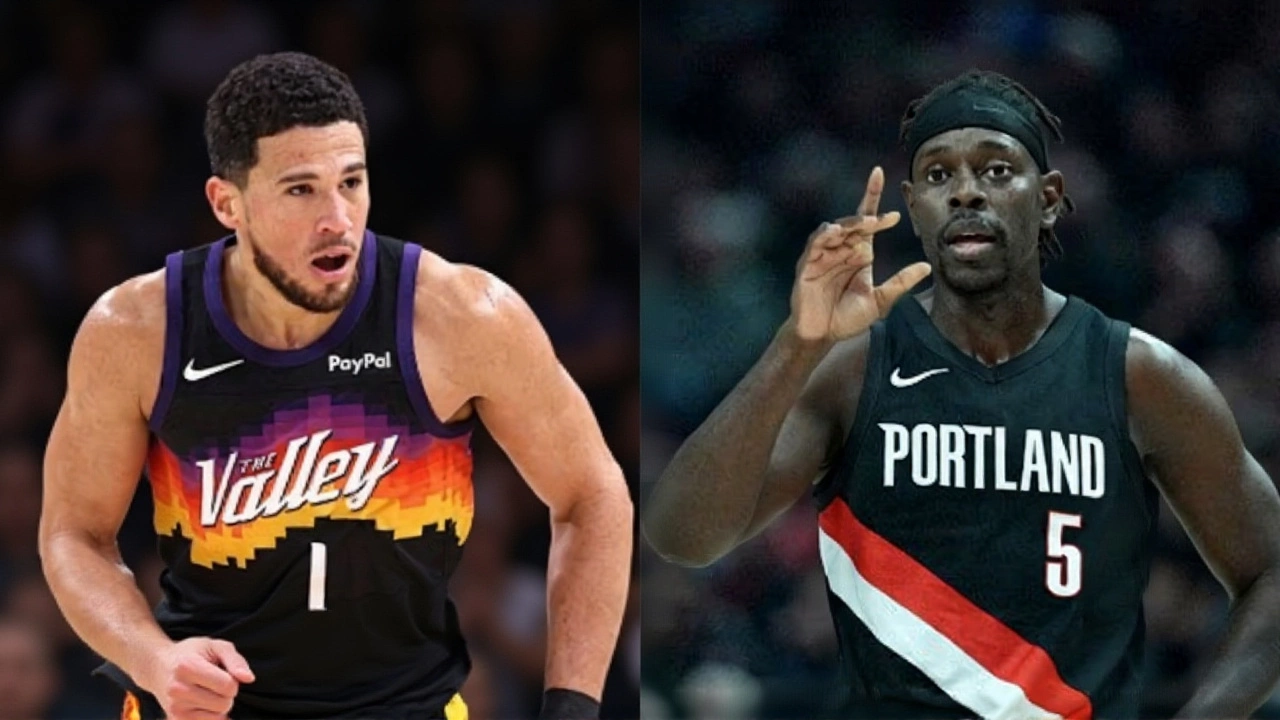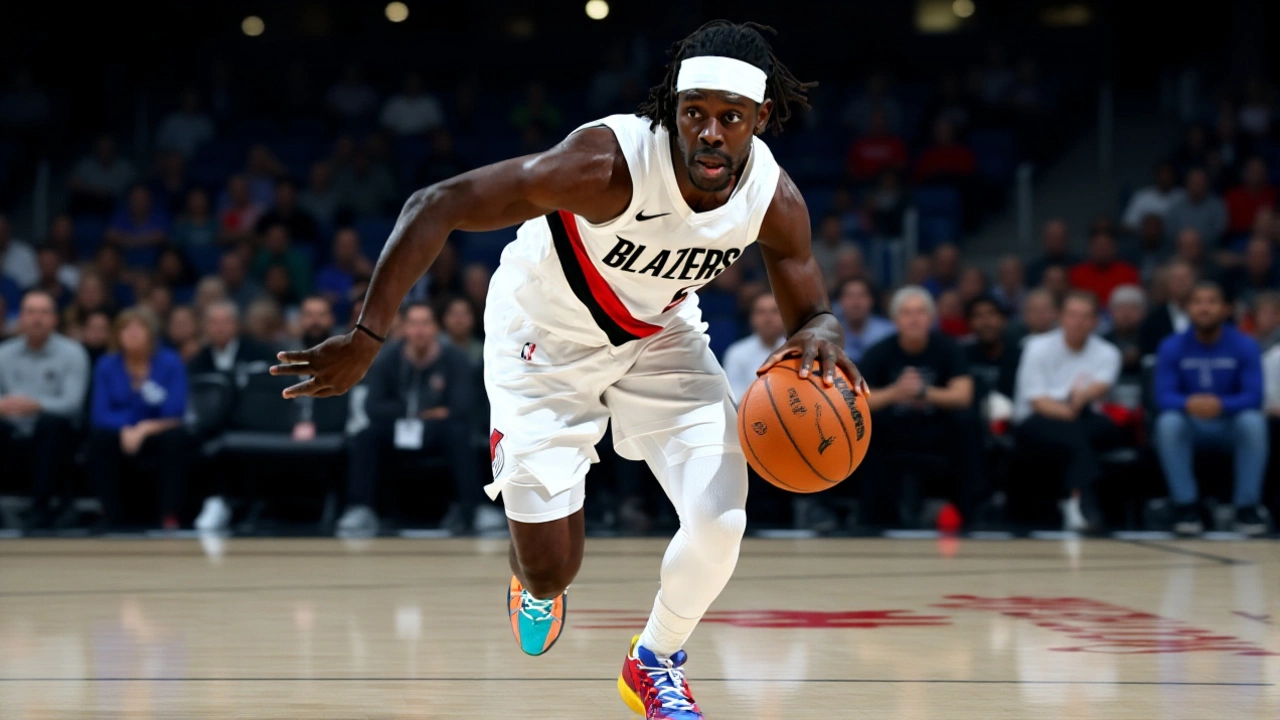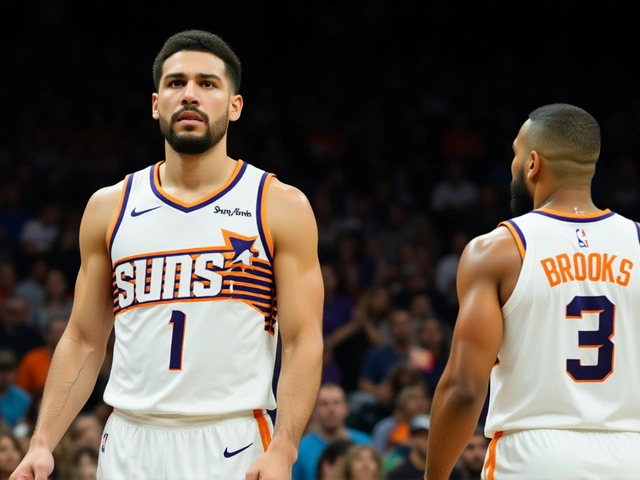The Devin Booker showed why he’s the heart of the Phoenix Suns — not just as their all-time leading scorer, but as their emotional anchor. On Tuesday, November 18, 2025, Booker dropped 19 points, six rebounds, five assists, and three steals in just three quarters, guiding his team to a commanding 127-110 victory over the Portland Trail Blazers at the Moda Center in Portland, Oregon. The win snapped a two-game skid and improved Phoenix’s record to 9-6, while Portland fell to 6-8 after their third straight loss — their fifth in six games. The game wasn’t pretty for the Blazers, who were missing four key players, but it was a masterclass in resilience from the Suns after blowing a 22-point lead just two nights earlier in Atlanta.
A Team Rebounds After Collapse
Let’s be honest: the Suns had a lot to prove. On Sunday, November 16, they surrendered a 22-point lead in the final quarter to the Atlanta Hawks in a 124-122 heartbreaker that ended a five-game winning streak. Coach Jordan Ott didn’t hide his frustration afterward. But here’s the thing — teams don’t get to the top by avoiding bad losses. They get there by how they respond. And on Tuesday, they responded with discipline. No panic. No slow-down. Just pace, pressure, and precision.
Booker didn’t need to carry the load alone. The Suns’ starting five — Ryan Dunn, Dillon Brooks, Royce O'Neale, Mark Williams, and Booker himself — played with a quiet confidence. Brooks, in particular, hit a milestone: his 1,000th career assist came in the first half. A quiet, gritty veteran who doesn’t seek headlines, yet here he was, quietly shaping the game.
Blazers’ Shattered Shooting, Broken Roster
Portland’s struggles weren’t just about injuries — they were about identity. Without Damian Lillard (calf), Jrue Holiday (calf), Jerami Grant (illness), and Scoot Henderson (out indefinitely), the Blazers were playing with a lineup that looked more like a developmental squad than an NBA contender. Their starting backcourt? Shaedon Sharpe and Deni Avdija. Neither is a playmaker. Neither is a closer.
And it showed. Portland shot a dismal 10-of-41 from three (24.4%), according to ESPN’s official box score. That’s not just cold — that’s unsustainable. Even Sharpe, who dropped 29 points, had to work for every bucket. He finished 11-of-28 from the field. The rest of the Blazers combined for just 12 threes. Meanwhile, the Suns, led by Royce O'Neale (43.7% from deep on the season), knocked down 14 of their 32 attempts. O’Neale, filling in for the injured Grayson Allen, was the quiet difference-maker.

The Turnaround: Third Quarter Explosion
At halftime, Portland had clawed back to within three points — 64-61. The Moda Center crowd was buzzing. A comeback felt possible. Then came the third quarter.
The Suns went on a 17-2 run. It started with a steal by Booker, ended with a thunderous dunk by Ryan Dunn that sent the arena into stunned silence. By the end of the quarter, Phoenix led 80-63. The Blazers didn’t score a field goal for nearly six minutes. No timeouts could stop it. No substitutions could fix it. The Suns’ defense, ranked 13th in the league in second-chance points allowed, turned Portland’s missed threes into fast breaks. And the Blazers? They just looked tired.
Rookie’s Moment and the Road Ahead
Amid the chaos, there was a moment of pure humanity. Rookie center Yang Hansen, returning from the G League’s Rip City Remix after missing nearly a month, dunked in the second quarter. The Moda Center erupted. It wasn’t a game-changing play — just a clean finish off a pick-and-roll. But for Portland fans, it was hope. A sign that maybe, just maybe, the rebuild isn’t as far off as it seems.
For Phoenix, the focus shifts to Friday, November 21, when they host the Minnesota Timberwolves. The Wolves are 10-5 and hungry for revenge after losing to the Suns in Phoenix last week. This game will test whether Phoenix can maintain their defensive intensity against a team that thrives in the half-court.
Portland, meanwhile, hosts the Chicago Bulls on Wednesday, November 19. With Lillard still out and no clear timeline for Holiday’s return, the Blazers might be looking at another rough stretch. Their next matchup against Phoenix? December 10 — a game they’ll need to win if they want to stay relevant in the Western Conference race.

What Booker Said After the Game
"To blow a 20-point lead in one quarter, a lot has to go wrong," Booker told reporters after the game. "So we went through it as a team. Everything was fixable. It was just a domino effect — one thing after another. That hasn’t been us for most of the season. It’s a good thing for us to learn from. We still have to play with pace, regardless if we’re up. Can’t have live ball turnovers. Can’t let them off the hook on rebounds. We didn’t do that tonight. That’s on us. And we fixed it."
His words weren’t just coaching points. They were a manifesto. The Suns aren’t just trying to win games. They’re trying to build a culture that doesn’t break under pressure.
Frequently Asked Questions
How did Devin Booker’s performance impact the Suns’ win?
Booker’s 19 points, five assists, and three steals set the tone for Phoenix’s offensive rhythm. More importantly, his leadership kept the team focused after their Atlanta collapse. He didn’t force shots — he created for others and capitalized on Portland’s defensive lapses. His presence on the court gave the Suns a reliable anchor, allowing role players like Collin Gillespie and Royce O’Neale to thrive. He played only 30 minutes but was on the floor for 11 of the Suns’ 17-2 third-quarter run.
Why did the Trail Blazers struggle so much from three-point range?
Portland’s 10-of-41 (24.4%) shooting from deep was a product of poor spacing, lack of playmaking, and defensive pressure. With Lillard and Holiday out, no one could consistently create open looks. Shaedon Sharpe carried the scoring load but faced constant double teams. The Suns’ perimeter defenders, especially O’Neale and Dunn, stayed attached to shooters, forcing contested threes. It wasn’t just bad luck — it was systemic.
What’s the significance of Dillon Brooks’ 1,000th career assist?
Brooks, often viewed as a defensive specialist and enforcer, reaching 1,000 assists shows his evolution as a playmaker. He’s not just a scorer — he’s a glue guy who reads defenses and finds open teammates. This milestone highlights his value beyond stats: he’s the player who makes others better. For a team that lost Grayson Allen, Brooks’ ability to initiate offense was crucial in maintaining flow.
How did the Suns’ defensive strategy change after the Atlanta loss?
After blowing a 22-point lead in Atlanta, Phoenix emphasized closing out possessions with discipline. They reduced live-ball turnovers by 40% compared to their previous game and improved rebounding by 12%. Coach Ott instructed his guards to stay attached to shooters and prioritize transition defense. The result? Portland’s second-chance points dropped to just 8, compared to their season average of 15.2.
Is Yang Hansen’s return a sign of long-term hope for Portland?
Yes. Hansen, 20, showed flashes of athleticism and timing in his 7-minute return, including a highlight dunk. He’s a project, but one with clear potential — 6’11", mobile, and efficient in pick-and-rolls. His return signals Portland’s commitment to developing young talent even during a losing streak. If he continues to get minutes, he could become a key part of their next core alongside Sharpe and Avdija.
When do the Suns and Blazers play again this season?
The two teams are scheduled to meet three times in the 2025-2026 regular season. Their next matchup is on December 10, 2025, in Phoenix. They’ll also face off on January 17 in Portland and March 2 in Phoenix. With Portland struggling and Phoenix in playoff contention, those games could be critical for playoff seeding and tiebreakers.


